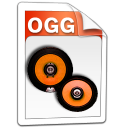TechBytes Episode 1: Apple, Microsoft, Bundling, and Fedora 14 (With Special Guest Brandon Lozza)
on November 1st, 2010 at 10:55 AM

Direct download as Ogg (1:31:18, 30 MB) | Direct download as MP3 (41 MB)
Summary: Brandon Lozza joins Tim and Roy for the first episode of TechBytes, which covers Fedora and many other subjects
TIM and I open the first show with a few words about Apple’s lawsuit against Motorola (over Android) because reports suggest that Apple — not Motorola — started it with provocation, just like in Nokia’s case. We then speak about what those cases of patent aggression (also from Microsoft) mean to ordinary gadget buyers who are hardly aware of such issues. Tim and I also discuss the choices which are made available to people and what limits the range of one’s choice.
 A second segment of our show is dedicated to the Fedora project. Brandon Lozza, a Fedora Ambassador, spoke to us about the Tuesday release of Fedora 14 and we also chatted about Canonical’s Unity, which offers interface substitution for GNOME Shell (developed largely with support from Red Hat). Brandon has a Web site and an Identi.ca account where you can follow him.
A second segment of our show is dedicated to the Fedora project. Brandon Lozza, a Fedora Ambassador, spoke to us about the Tuesday release of Fedora 14 and we also chatted about Canonical’s Unity, which offers interface substitution for GNOME Shell (developed largely with support from Red Hat). Brandon has a Web site and an Identi.ca account where you can follow him.
A future show with Wayne Borean is expected but not yet scheduled. Wayne is quite an expert in copyrights (as a recording professional) and active participant in the debate about copyright law in Canada. He can also speak to us about Microsoft and Windows, which he has been tracking for decades and regularly writes about in his Web site.
![]() You can follow TechBytes through Identi.ca and subscribe to the show via RSS feeds.
You can follow TechBytes through Identi.ca and subscribe to the show via RSS feeds.
Thanks to all those who gave feedback on [cref 41234 the pilot], which got over a thousand downloads (so far). If you enjoy the show, please consider recommending it to others.
As embedded (HTML5):
Download:

(There is also an MP3 version)
Update: David from GNU Octave wrote to point out that my assessment of the project may not have been fair. “Heard the first (well 1st, not 0th) episode,” David politely wrote, “and I have to object to the notion that Octave is a stale project. We have a lot contributors. Plotting is still not on par with matlab, which I agree is holding things back. We have few people improving the plotting, but it is slow.” Admittedly, the last time I compiled Octave was about 5 years ago on SUSE and it was a bit of a struggle.
